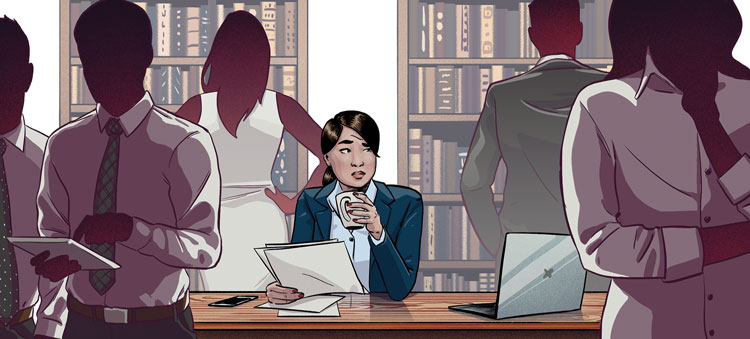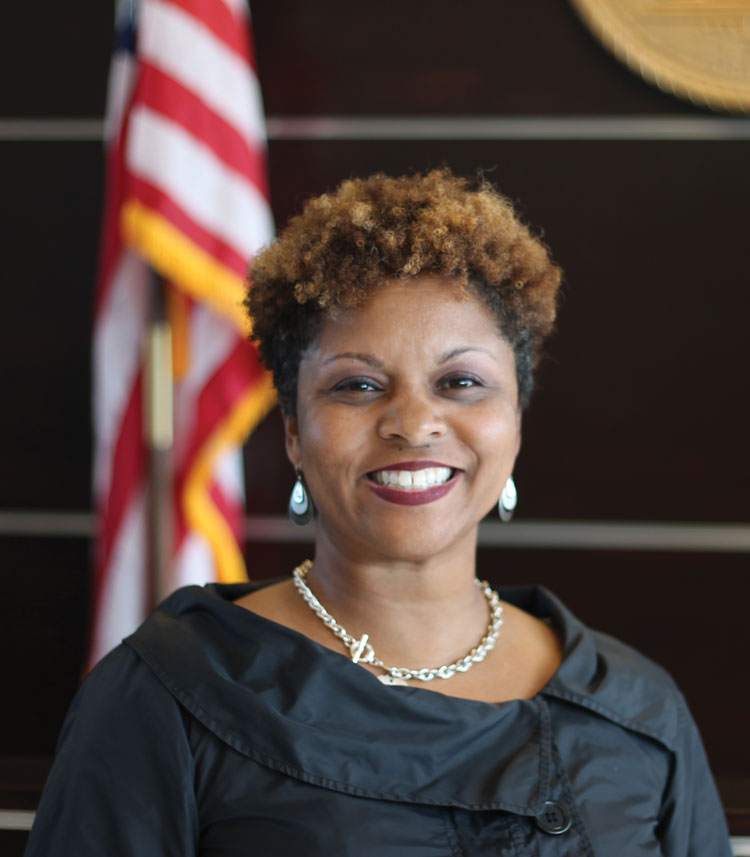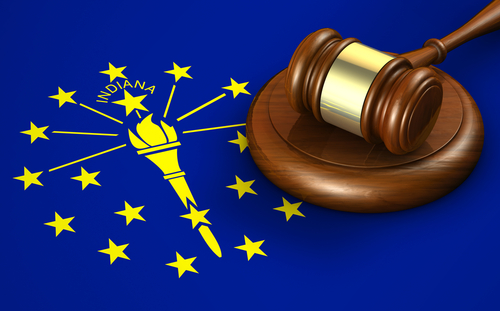Supervision is key to effective employment of paralegals

Illustration by Steven P. Hughes
Attorney usage of paralegals and legal assistants is a respected reality in today’s legal climate. The Bureau of Labor Statistics reports there will be a 15 percent increase in paralegal jobs from 2016 through 2026—a rate it lists as “much faster than average” compared to other professions.
Paralegals perform a litany of tasks—including drafting documents, preparing attorneys for trial and organizing client files. The U.S. Supreme Court also has weighed in, writing in Missouri v. Jenkins, a 1989 school desegregation case, that paralegals provide the “cost-effective delivery of legal services.”
However, attorneys must be aware of ethical issues that can arise from using paralegals and legal assistants. Perhaps the most direct rule on point is Rule 5.3: Responsibilities Regarding Nonlawyer Assistance in the ABA Model Rules of Professional Conduct. Among other requirements, the rule explains that lawyers must make reasonable efforts to ensure those working under them comply with “professional obligations.”
The rule also explains that a lawyer who has supervisory authority over nonlawyers is responsible for the ethical violations committed by such nonlawyers. Comment 2 to Rule 5.3 explains: “A lawyer must give such assistants appropriate instruction and supervision concerning the ethical aspects of their employment, particularly regarding the obligation not to disclose information relating to representation of the client, and should be responsible for their work product.”
JUGGLING ACT
Some ethics experts identify delegating too much work to paralegals as the No. 1 ethical concern for attorneys. The key is to maintain adequate supervision over nonlawyer employees.
“The biggest minefield I see is overworked or inattentive lawyers failing to provide adequate direction and supervision, leaving the paralegal to figure things out on [their] own,” says Salt Lake City lawyer Keith A. Call, who has written about ethical issues involving paralegals in the Utah Bar Journal.
The process of delegating things that are hard for attorneys to figure out themselves is especially dangerous, Call says. “Under Rule 5.3, a lawyer can be personally responsible for the unethical conduct of his or her paralegal. And all too often, overworked or careless lawyers can be tempted to dump too much responsibility on the paralegal and fail to follow up with adequate supervision,” he says.
A related concern is that attorneys might give too much work to paralegals or not realize the paralegals are actually practicing law. Case reporters are filled with complaints in which attorneys faced discipline—sometimes very serious discipline—for allowing their paralegals to engage in the unauthorized practice of law.
“While I think there is a problem with attorneys delegating to and not adequately supervising paralegals, I think the bigger concern is paralegals conducting themselves in ways that could be considered the practice of law and attorneys not reining that in,” says Kellyn O. McGee, a professor at Savannah Law School.
“Paralegals have great knowledge in the areas of law that they work in,” she says, adding that “it’s easy for them to give advice or otherwise cross the line and either not realize that they shouldn’t be doing it or attorneys might believe it’s harmless.”
A specific variant of this problem in some firms is paralegals signing up clients. “Some law firms allow paralegals to sign up new clients,” says ethics expert Peter A. Joy, a law professor at Washington University in St. Louis. “This can be a big problem because paralegals cannot exercise the independent legal judgment necessary to sign up a client, and sometimes paralegals may be crossing the line by soliciting clients.”
Joy points out another area of concern—lawyers allowing paralegals to sign legal documents.
“One area that some lawyers ignore both with paralegals and with other support staff is permitting someone other than a lawyer to sign a pleading or any other court filing,” he says. “Both the ethics rules and court rules require a lawyer to sign anything filed in court.”
ISSUES OF CONFLICT
Paralegals sometimes switch law firms, just like attorneys do. Law firms must have proper screening mechanisms in place to guarantee that paralegals have no conflicts of interest. A classic textbook case is In re Complex Asbestos Litigation (1991), in which the California 1st District Court of Appeal ruled that a law firm was disqualified from asbestos litigation because the firm hired a paralegal who had worked on the same case with the law firm on the other side. The firm failed to properly screen the paralegal, leading to the disqualification of the law firm from nine related asbestos lawsuits.

Kellyn McGee: “I think the bigger concern is paralegals conducting themselves in ways that could be considered the practice of law.” Photo courtesy of Savannah Law School.
“Firms should conduct conflicts checks when hiring paralegals and should properly screen paralegals when they need to, and that screening might also include prompt notice to the opposing side,” McGee says. “Failure to properly screen could result in the firm’s disqualification.”
Attorneys also should be mindful of another of the hallmark principles of professional responsibility—confidentiality—and how that intersects with the use of paralegals. Lawyers are taught ad nauseam about Rule 1.6 and the duty of confidentiality, but those lessons have to be effectively communicated to legal support staff.
Paralegals must take great care to make sure that confidential client data is not transmitted to the other side or to third parties.
“Paralegals often handle volumes of client information in the form of paper and electronic documents,” Call says. “It is particularly easy to make a mistake in handling electronic information. For example, use of a file-sharing platform without passwords or encryption can lead to disastrous results. Or, if a paralegal is not careful, privileged information can be transmitted in metadata even though it has been redacted from the primary document.”
Confidentiality extends to conversations about cases. Call cautions that lawyers should “train paralegals to avoid talking about confidential matters with family members and friends.” Paralegals might not have the same level of training on confidentiality as attorneys, who have the concept “drilled into them in law school, bar exams and CLE programs,” he says.
ADVERTISING AND SOLICITATION
Attorneys also need to be wary of allowing paralegals to post advertisements or other information about their law practice without supervising these statements.
Last spring, the South Carolina Supreme Court in In re Emery disciplined a lawyer for several ethical violations, including a failure to post accurate information on the attorney’s website. The lawyer had hired a paralegal to post the material on the website, but some of it was inaccurate. For example, the paralegal created Facebook posts that congratulated clients after their real estate closings but did not obtain clients’ permission to use their names. The paralegal also posted about the quality of legal services, such as using the word best to describe the attorney without providing substantiation.
The South Carolina court found the attorney violated state ethical rules based on ABA Model Rule 5.3 and also Rule 7.1—which prohibits false and misleading statements regarding the lawyer’s services.
This is one of many cautionary tales. For attorneys at all practice levels, paralegals may provide incredible value. But lawyers must take their duty of supervision for legal employees seriously to ensure ethical compliance.
“Limiting the use of paralegals and other nonlawyer professionals may make it increasingly difficult for many lawyers, particularly small firms and solo practitioners, to practice to the top of their licenses,” says Ellen Murphy, a professor at the Wake Forest University School of Law who specializes in professional responsibility issues. “The real minefield lies on either side of the thin line between increasing productivity using paralegals and remaining ethical using paralegals.”
This article was published in the January 2018 issue of the ABA Journal with the title "Assistant Alert: Supervision is key to effective employment of paralegals"



